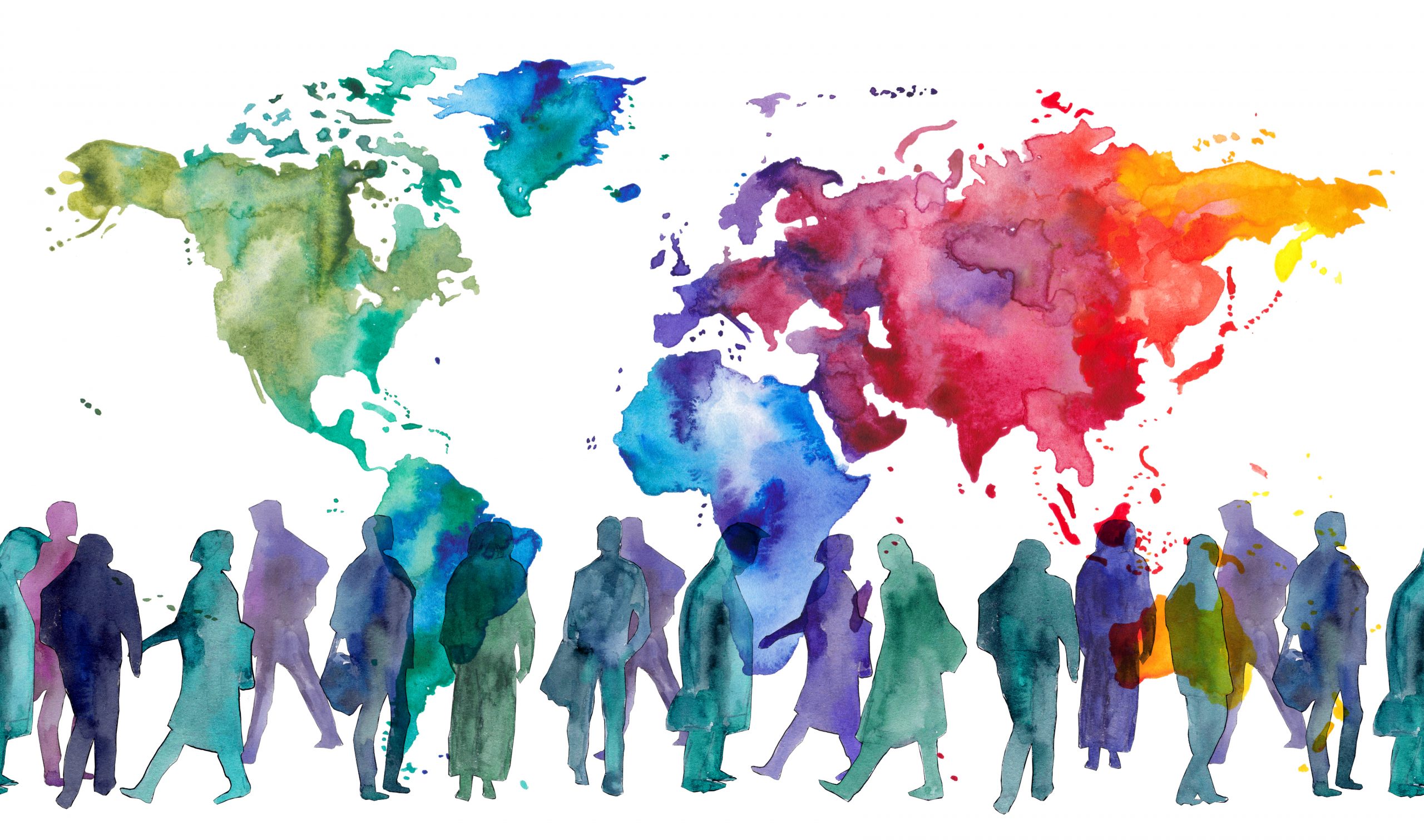
Schizophrenia statistics: How many people have schizophrenia?
In this section
According to the World Health Organization (WHO), there are at least 20 million people living with schizophrenia worldwide.1 That’s 20 million people who may need additional help and support to live their normal lives, whether that’s being able to get up and go to school or work every day, or just be able to spend quality time with their family and friends or interact other people.
This article covers the epidemiology of schizophrenia and presents some statistics on the incidence and prevalence of schizophrenia. It also looks at the significant impact that schizophrenia has on all aspects of people’s lives.
Read article
How common is schizophrenia?
When trying to determine exactly how many people have schizophrenia there is no simple answer. It depends on which study you look at and how the study was set up and run.2 It also depends on how a diagnosis of schizophrenia was defined, particularly since the symptoms of schizophrenia can sometimes overlap with other mental health conditions.2
The number of people affected by schizophrenia can be expressed in terms of its prevalence or its incidence and given as a percentage or number of the population affected.
Prevalence of schizophrenia
This refers to the total number of people who have schizophrenia in a population.
Incidence of schizophrenia
The refers to the number of people who receive a new diagnosis of schizophrenia.
Taking the prevalence of schizophrenia first, it’s been reported that somewhere between 0.3% and 0.9% of the global population are living with schizophrenia or a psychotic disorder2,3 and that schizophrenia will affect around 1% of the global population at some point in peoples lives.3
Looking at the incidence of schizophrenia, it’s been estimated that the average is around 15 people in every 100,000 of the population.4 That’s according to a systematic review of multiple studies, but within this the incidence of schizophrenia was estimated to range from around seven in 100,000 up to 43 in 100,000 people.5
What’s the impact of schizophrenia?
The prevalence and incidence of schizophrenia is lower than for some other diseases, including other important mental health conditions such as anxiety and depression.6 However, schizophrenia is a chronic and severe mental disorder1 that can result in considerable disability even when managed appropriately so it is no less important. 6 Indeed, schizophrenia can affect people’s ability to look after themselves, function socially, complete their education, and gain and keep employment.
More importantly, having schizophrenia has been reported to shorten people’s life expectancy by around 15–20 years7,8 and that people with schizophrenia are two to three times more likely to die at an earlier age than people in the general population.1
Reasons for this shortened life expectancy could be due to a higher rate of suicide compared to the general population, particularly in the early stages of the illness.2,7 Unhealthy behaviors such as smoking or substance use, and coexisting conditions, such as heart disease, liver disease or diabetes, may also be contributing.4 This makes it all the more important to not only manage schizophrenia early in the course of the illness, but also to tackle any behaviors or other conditions that may reduce a person’s risk of premature death.
Measuring the global impact of schizophrenia
One of the ways that the impact an illness has on people and society generally is to measure the so-called ‘burden of disease’ using a measure called ‘disability-adjusted life years’ or DALYs. Essentially one DALY represents 1 year of healthy life that is lost because of an illness; this can be because of premature death, disease or disability caused by the illness.9
For the past 30 years, the Global Burden of Disease Project has been gathering statistics on the burden of various disease. In one of the recent reports from this study on mental health disorders, it’s noted that although schizophrenia affects a smaller proportion of the world’s population, the disability due to acute psychosis was the highest across the whole study. 6
Not only that but also schizophrenia was third in the list of 10 mental health condition contributing the highest percentage of DALYs, being topped only by depression and anxiety.6
Reducing the impact of schizophrenia
Given the significant impact of schizophrenia on people’s lives, early diagnosis and treatment is key to helping them recover and get back to a normal rhythm of life. You can learn more about the diagnosis of schizophrenia and interventions used to improve people’s functioning here.
Read article
References
- World Health Organization (WHO). Schizophrenia. Geneva: WHO, October 2019.
- National Institute of Mental Health (NIH), Schizophrenia. Bethesda: NIH. Accessed November 2021.
- Stilo SA, Murray RM. The epidemiology of schizophrenia: replacing dogma with knowledge. Dialogues Clin Neurosci.2010;12(3):305–15.
- McGrath J, Saha S, Chant D, Welham J. Schizophrenia: A concise overview of incidence, prevalence, and mortality. Epidemiol Rev. 2008;30:67–76.
- Patel KR, Cherian J, Gohil K, Atkinson D. Schizophrenia: Overview and treatment options. P T. 2014;39(9):638–45.
- GBD 2019 Mental Disorders Collaborators. Global, regional, and national burden of 12 mental disorders in 204 countries and territories, 1990–2019: a systematic analysis from the Global Burden of Disease Study 2019. Lancet Psychiatry. 2021 (In Press).
- Laursen TM, Nordentoft M, Mortensen PB. Excess early mortality in schizophrenia. Annu Rev Clin Psychol. 2014;10, 425–48.
- Laursen TM, Whalbeck K, Hällgren J, et al. Life expectancy and death by diseases of the circulatory system in patients with bipolar disorder or schizophrenia in the Nordic countries. PLoS ONE. 2103;8(6):e67133.
- Roser M, Richie H. Burden of Disease. 2016. Published online at OurWorldInData.org.
FUNCTIONING IN SCHIZOPHRENIA
Overall functioning is a key unmet clinical need that encompasses especially negative and cognitive symptoms, and is closely tied to quality of life.
more…DELUSIONS AND PARANOIA: IS THERE A …
Paranoia and delusions are terms that are used in psychiatry, and the two are often intertwined in mental health illnesses.
more…


